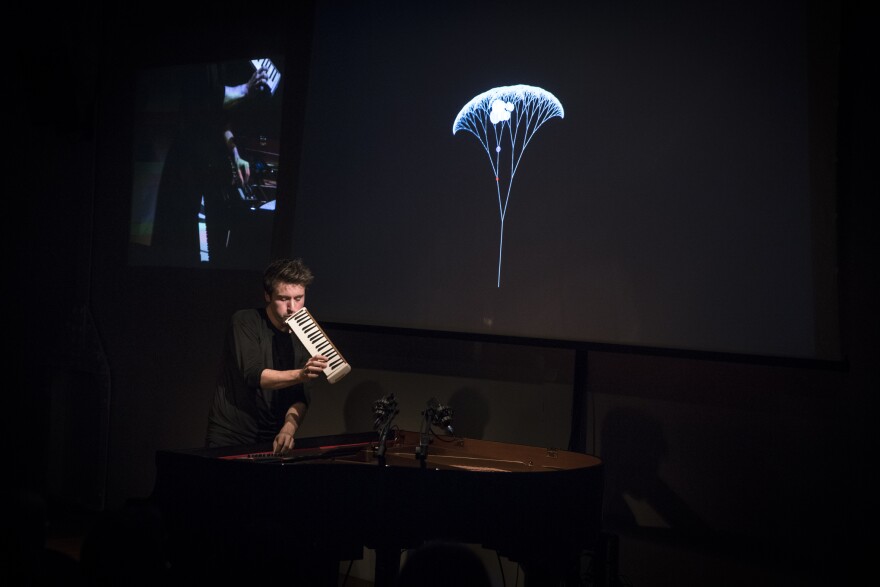Dan Tepfer is a jazz pianist whose newest project, Natural Machines, brings virtual reality and algorithmic learning into the realm of the concert hall. He appears next Tuesday at National Sawdust in Brooklyn, where his audience will join him in an immersive audiovisual saga.
What kind of music J.S. Bach might be making today? Tepfer has long been obsessed with that composer’s famous Goldberg Variations — making it the subject of his 2011 album, Golberg Variations / Variations — and recently started thinking about how the same idea could propel a state-of-the-art musical idea.
Tepfer, who was formally trained as an astrophysicist but self-taught as a computer programmer, writes his own code for a Yamaha Disklavier, enabling the digital player piano to react to his improvisations in real time.
For each composition, Tepfer prescribes a strict set of guidelines or rules, as he explained in a video short for Jazz Night In America, which was recently nominated for a Webby Award.
When I sat down with Tepfer last fall, at the So What’s Next? Festival in The Netherlands, he discussed how he’s pushing the project even further. His latest innovation brings visualizations into the picture, with code so that the music generates morphing shapes, projected onto a screen. “When I play, if I can see the screen, there is this amazing kind of feedback loop that happens with the visuals,” he says, “where I’m creating the visuals as I play and then the look of them will inspire me to play a certain way in response.”
Tepfer invites his audience to be a part of this loop, handing out Google cardboard VR goggles so they can experience the full hypnotic effect. Here is a video for the piece he calls "Tremolo.”
Natural Machines will be released in album form on Sunnyside Records on May 17, 2019.
Subscribe to The Checkout on Apple Music, Spotify, Stitcher, and Google Play.




